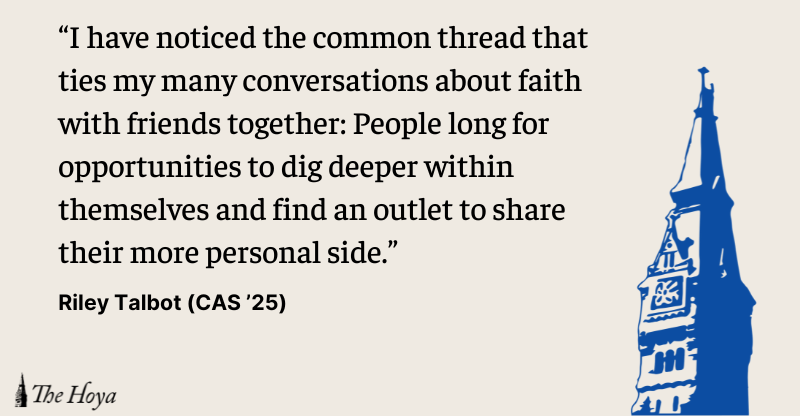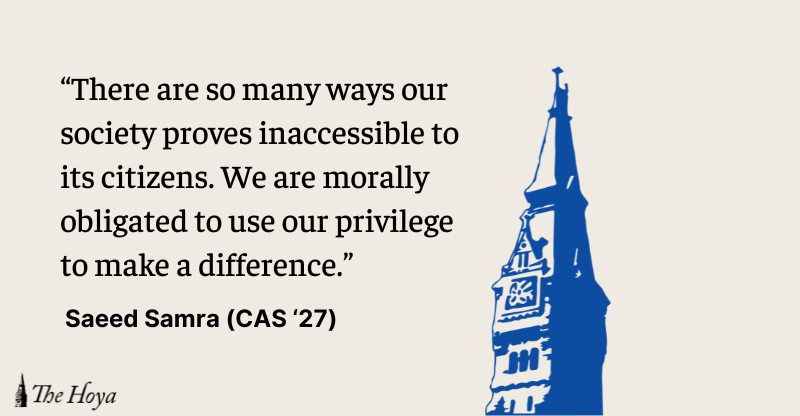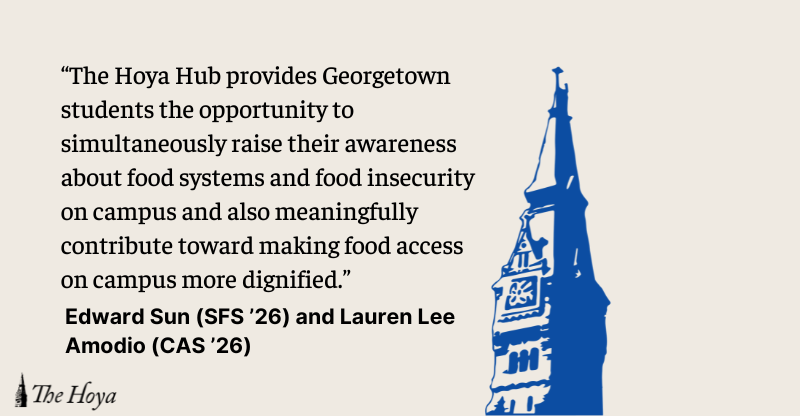On Sept. 7, Secretary of Education Betsy DeVos announced President Donald Trump’s administration will open a public comment period, beginning the process to create new regulations concerning Title IX, a federal law stating that access to education should not be denied on the basis of sex. DeVos has targeted several of the policies established in recent years that seek to protect survivors of sexual assault and other forms of interpersonal violence.
As student leaders in sexual assault awareness and prevention efforts at Georgetown, we see this dangerous move away from survivor-centric policies as a sign that our government is not serious about tackling the epidemic of sexual violence on college campuses.
Although the regulatory changes that DeVos is considering remain unclear, it is widely understood that the administration intends to target the protections of the 2011 “Dear Colleague” letter. In fact, the Trump administration has already showcased a willingness to limit the scope of Title IX, withdrawing Obama-era protections for transgender students.
Former President Barack Obama’s administration created the “Dear Colleague” letter to ensure universities maintain the principle of Title IX. The letter explicitly outlines the responsibilities universities have in responding to sexual violence and offers clear guidance as to the rights of survivors in the Title IX reporting and compliance process. To make the gravity of the issue clear, the letter also detailes the repercussions universities would face if they failed to enforce Title IX, which could include the withdrawal of federal funding in extreme cases.
Last week’s announcement was not the Trump administration’s first threat to dismantle the protections of Title IX, but it was the most serious yet. These impending changes in policy signal to survivors and activists, who have worked for years to improve the protections offered by Title IX, that their trauma and commitment to ending sexual violence does not matter to this administration.
The recent threats by the Trump administration concerning Title IX demand that Georgetown reaffirm its commitment to defending and advocating for survivors of sexual assault. In order to make clear that addressing sexual violence remains a priority, Georgetown must publicly commit to continue to uphold the standards of the “Dear Colleague” letter and to work to end sexual violence on campus.
The Georgetown community understands all too well the importance of working against sexual violence on campus. The university first implemented a policy against sexual assault in 1997, and the 20 years since then have seen constant efforts to fight back against sexual assault. In the early 2000s, Georgetown required survivors to sign non-disclosure agreements, which protected the assailant’s identity, in order to receive information concerning the status of their case. After a 2003 student lawsuit and subsequent intervention by the Department of Education, the university was forced to prioritize responding to sexual violence survivors over their assailants.
Over a decade later, the 2016 Campus Climate Survey — taken between January and February of 2016 — revealed that much work still remains to be done. The survey aimed to determine the frequency of sexual assault and misconduct at Georgetown and found that about one in three female, one in 10 male and one in four transgender, genderqueer or nonconforming undergraduates had experienced nonconsensual sexual contact as a result of physical force or incapacitation during their time at Georgetown.
The survey also found that more than three in four female, three in five male and four in five transgender, genderqueer or nonconforming undergraduate students had experienced some form of sexual harassment during their time on campus. Almost without exception, the survey found that rates of sexual violence at Georgetown exceeded national rates, which could be attributed not only to higher rates of incidence, but also to more frequent reporting by survivors.
The creation of a sexual assault task force, addition of new staff to address the crisis and allocation of more financial resources to programming in response to this data demonstrates that the university understands the importance of addressing sexual violence. Beginning this academic year, Georgetown is now requiring all new students to participate in bystander intervention training. While Georgetown has made important progress, this work is far from over.
We are currently in the “red zone,” the initial six weeks of an academic year during which students are most likely to be sexually assaulted. As such, now should be the time when our community recommits to tackling the ongoing problem of sexual violence. The Trump administration has shown it is more interested in standing with perpetrators than survivors, but Georgetown cannot do the same.
This week, Take Back the Night — a student advocacy group committed to fighting gendered violence — is releasing a petition calling on Georgetown to make this commitment public. We can do more and be better, regardless of the shameful choices the current presidential administration might continue to make on this issue. We hope you join us.
Daria Crawford is a sophomore in the College. She is co-president of Take Back the Night. Morgan Robinson is a sophomore in the School of Nursing and Health Studies. Kory Stuer is a junior in the College. They are leaders in the Sexual Assault Peer Educator program.




















Man with the Axe • Sep 14, 2017 at 9:55 pm
You argue for ” survivor-centric policies” without even a brief mention of the rights of the accused to due process.
Unless Georgetown is the world’s capital of sexual assault the rates of assault and harassment you cite cannot be real. Is everyone assaulting or harassing everyone else?
If this “epidemic” were real, why would any sensible woman stay at this rape-a-looza that is Georgetown
Arthur Murgatroyd • Sep 13, 2017 at 12:05 pm
Though sexual misconduct is a serious issue, so too is the terribly flawed way in which schools handle these cases. The Obama-era letter did nothing to improve the situation on campuses, but rather it ensured greater injustice and confusion. Providing a better support system is one thing, but schools have been coerced into taking draconian measures against anyone accused of anything resembling (vaguely defined) “sexual assault”.
Due process and the rights of the accused must be protected. Judgements made on just a preponderance of the evidence (the lowest possible burden of proof) in kangaroo courts help no one, and they can even discredit the entire system.
Upholding the Dear Colleague letter would mean drifting ever further from the principle of “innocent until proven guilty” and further towards the destruction of civil liberties. Stand against rape on campus, but do not stand for that shameful letter.